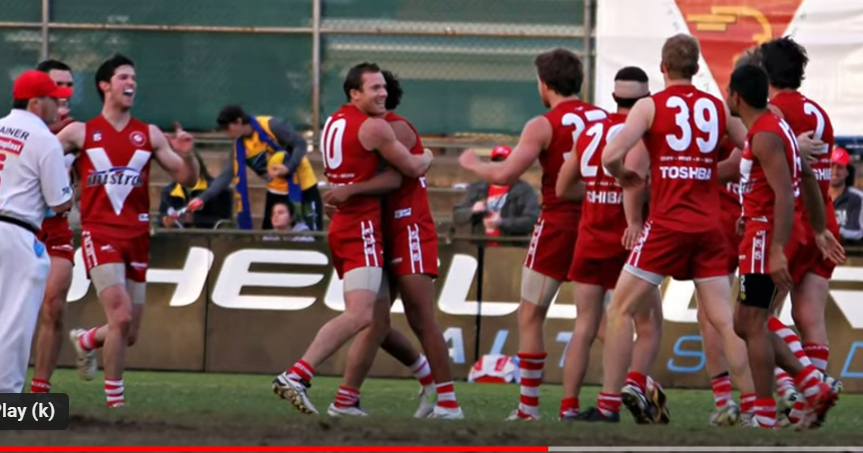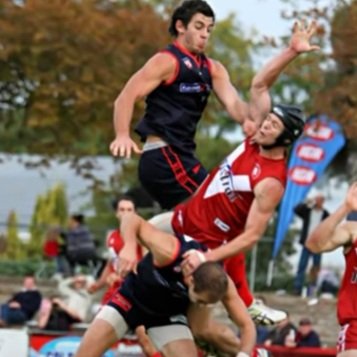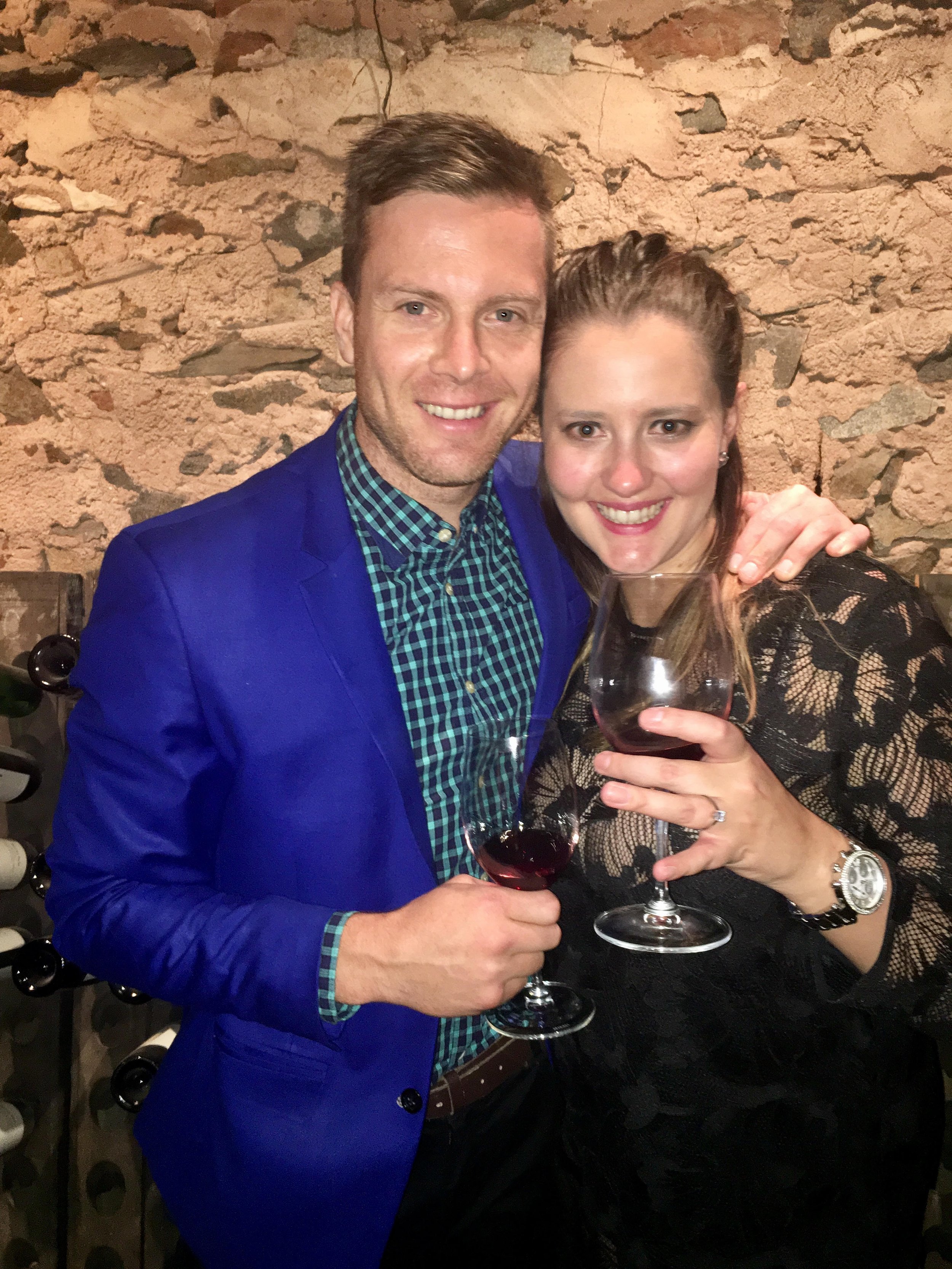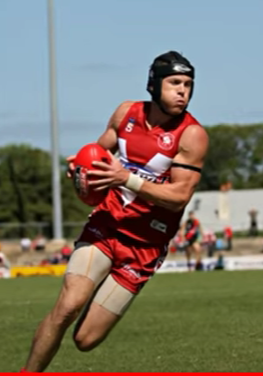Luke Ivens
I have been diagnosed with a brain injury caused by repeated head trauma. What can result from this brain damage is memory loss, poor impulse control, impaired judgement, aggression, anxiety, depression, suicidality and eventually progressive dementia. More people are becoming aware of the lasting effects of concussions through media reports and the tragic stories of those who have lost their battle with Chronic Traumatic Encephalopathy (CTE). However, I want my story to be one of hope rather than despair. None of us can know the future and I prefer to focus on what I can do in the moment I am living right now rather than on what might happen to me in the future. I want to convey how passionate I am about supporting brain injury sufferers and their families. This story does mention challenges, not to seek pity, but to raise awareness; that there is help out there, that you can live a normal life, that there is hope and above all that you are not alone. I want us all to work together, those who are affected by CTE, their families, friends, coaches, sports administrators and an aware community so that we no longer read yet another caption in the paper of a person who has taken their life and see pictures of their loved ones mourning their death.
PERSONAL JOURNEY
I played 194 games for the North Adelaide Football Club in the SANFL between 2000 and 2013. Being a boy from the country who lived for sport, it was an honour to play just 1 game for the red and white. I broke 1 ankle, dislocated my finger and tore a few hamstrings – I was pretty lucky with injuries. But little did I know, it would be the head knocks that would haunt me in the end.
I suffered multiple concussions in my career including five in a season at the age of 21. At the season's end I was given two choices by the medical staff; wear a helmet or retire. The latter wasn’t an option for me, so the helmet became part of my uniform for the remainder of my career. I certainly wasn’t the most skilful football player but early on in my career my coaches would celebrate my ‘hard ball gets’. I would take pride in being courageous at the contest and not taking a backward step. One of the most severe concussions I suffered came at the age of 23. My teammate took a mark at half back and I exploded into space on the wing. Unfortunately, the kick was ill-directed and I collided with the centre half forward. The vision showed us running at full speed, with his elbow connecting with my chin. I woke up in the medical room and required sixteen stitches to my chin. At the time, I thought it was a pretty cool battle scar. Knowing what I know now, I wouldn’t change the way I played, but it’s come at a cost.
I want to stress that I certainly don’t hold any resentment towards North Adelaide or the SANFL as there was no understanding of the potential risks or protocols in place. Yes, I am faced with some challenges that I need to manage throughout my life, but would I take it back? Definitely not! The game gave me so much joy and lifelong friendships. It also played a big role in shaping the person I am today.
In 2019 I noticed subtle changes as I was winding up my footy career in country SA. There were the obvious changes of getting slower on the field, but I was also becoming increasingly anxious, particularly in social settings. Over the next three years, other symptoms crept in, including headaches and short-term memory loss. Becoming frustrated and going down a rabbit hole in search of answers, my self-worth declined. At the lowest points, I would need to self-medicate with half a dozen drinks before going to any social event. Rocking up sober was my worst nightmare and the alcohol gave me some ‘Dutch courage’. This became a pattern for me and I would think that no-one would want to talk to me or I’d look silly if I wasn’t drinking. What I’ve come to realise now is that it was the complete opposite – no one wanted to be around me when I was drinking as my behaviour could become erratic and unpredictable. I had countless mornings waking up filled with guilt and remorse and having that dreaded feeling of ‘what did I do this time.’
At the end of 2021, a visit to Adelaide based neurologist, Dr Yizhong Zhuang, saw me immediately referred to Dr Rowena Mobbs (Sydney neurologist and CTE specialist). From their observations of numerous scans and hearing my symptoms, both neurologists diagnosed me with a significant brain injury as a result of my multiple head knocks. Dr Zhuang likened the damage I have suffered to that of a car crash victim.
From 2019-2022 my mental health fluctuated, as did my alcoholism which was my coping mechanism, a way to ‘escape’. With a young family, a wife at the end of her tether and my workplace realising that things weren’t right, I was in a dark place. After my diagnosis from Dr Mobbs, I chose the self-pity, self-sabotage route. After hitting rock bottom, I knew I had to make some changes. I used the Summer of 2022 to focus on positive strategies and put the necessary steps in place to combat my symptoms. I began exercising most days, kept up a healthy diet including abstinence from alcohol and practiced mindfulness activities. I discovered the enormous benefits in all facets of my life and I’m determined to never look back. With my friends and family by my side and the support of health professionals including psychologists, psychiatrists and neurologists, I was guided in the right direction to live a ‘normal’, healthy life. I know this is daily work and there is an element of unknown to my disease but I consider myself lucky that I got the help I needed to break the vicious cycle before it was too late.
RAISING AWARENESS
As an Adelaide based ambassador for the Concussion Legacy Foundation my main goal is to spread awareness and be an advocate to support individuals and their families who suffer from similar effects. In 2023 I visited over 30 sporting clubs and schools across the State to spread the word of the importance of correct concussion protocols and the risks involved if they are not followed. In the near future, I would love to set up a past players support system for brain injury sufferers. As mentioned, I found that it is very easy to go down a rabbit hole if you don't know where to look for help so I would like to help work on the provision of a series of treatment options and specialist resources that can be triaged to suit individual needs. It is important that this information is readily accessible and clearly understood by the individual needing help. An insurance policy could also be triggered, so sufferers wouldn’t be deterred by the financial costs of gaining help. I’m not going to rest while others are suffering, rather I would like to be proactive and add strength and support to this vital foundation.
Recently I coordinated the CLF Australia - Adelaide Team Up Triathlon on the Semaphore Foreshore with around 1500 people in attendance. I was responsible for the design and delivery of this event liaising with elite sportspersons, government members and council groups, industry sponsors, allied medical professionals and the sporting community. A large part of the role was to involve our youth and school communities. This enabled us to share important education with our junior sports groups whilst also raising awareness across Adelaide to encourage safer protocols and better supports for both concussion and CTE prevention.
I have 3 sons and people regularly ask ‘would you let them play football’? My answer… Absolutely! However that ‘absolutely’ comes with the proviso that very strong protocols are put in place and constantly reviewed in light of ongoing research in order to make the game as safe as possible. The key issues here are raising awareness at all levels of the game and keeping players safe.






